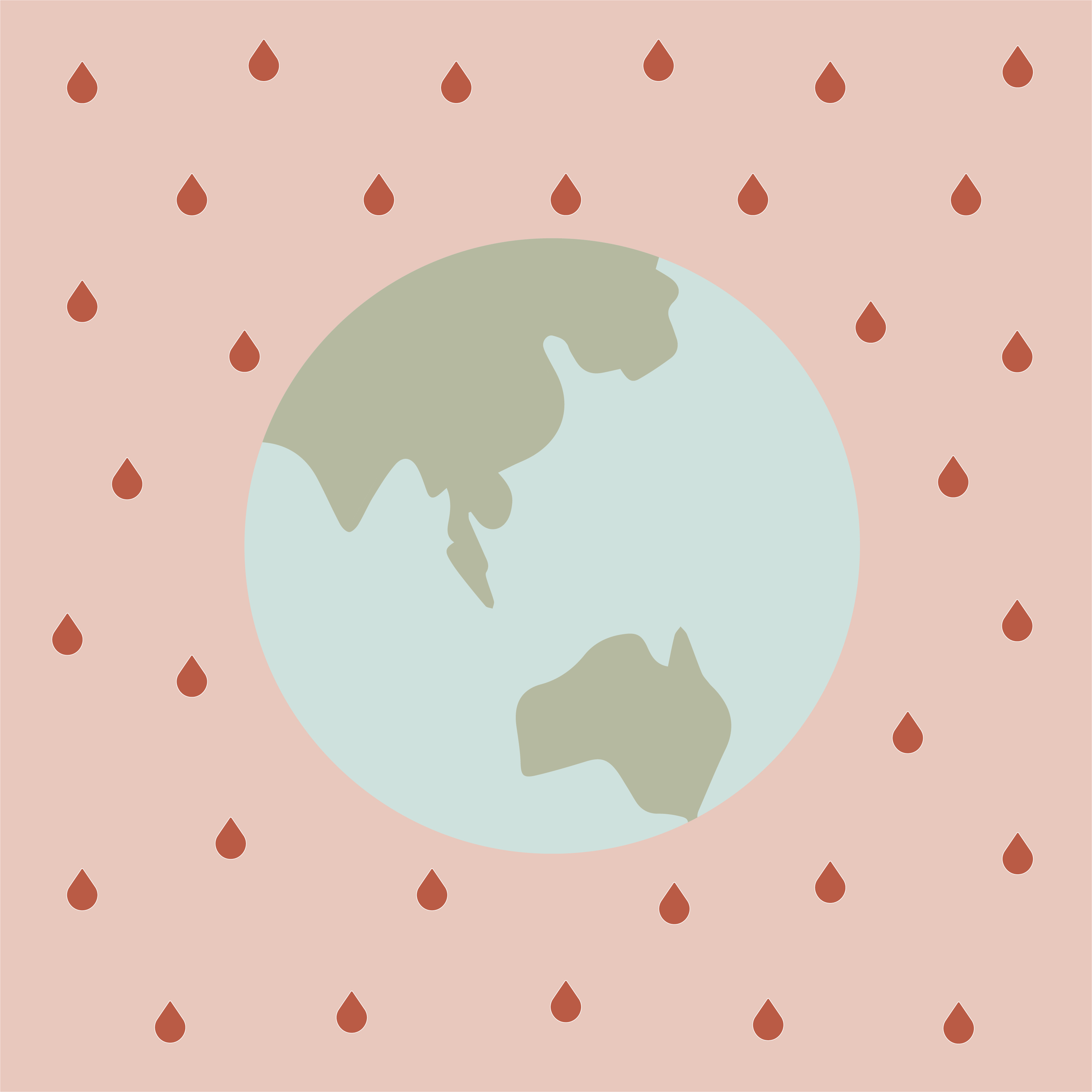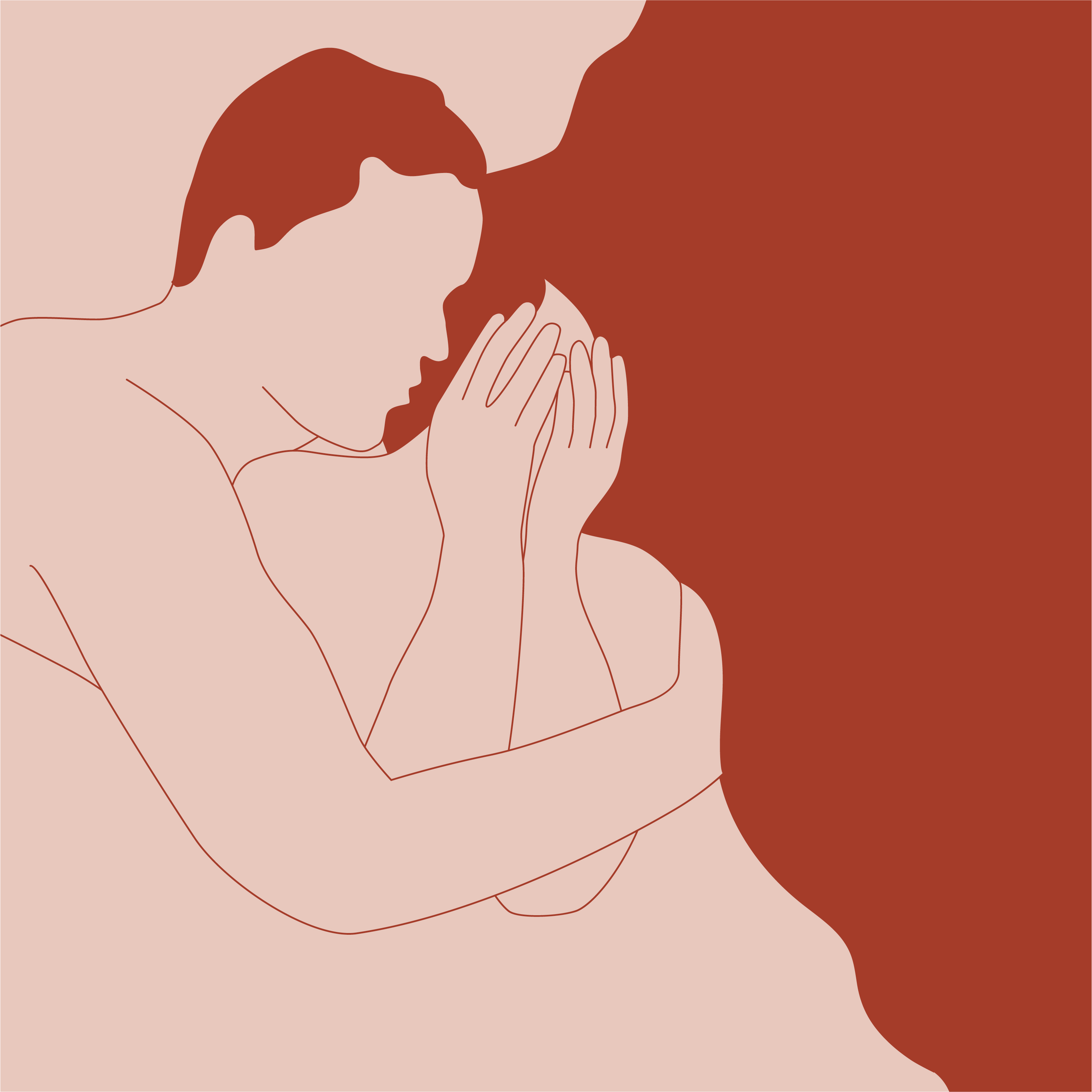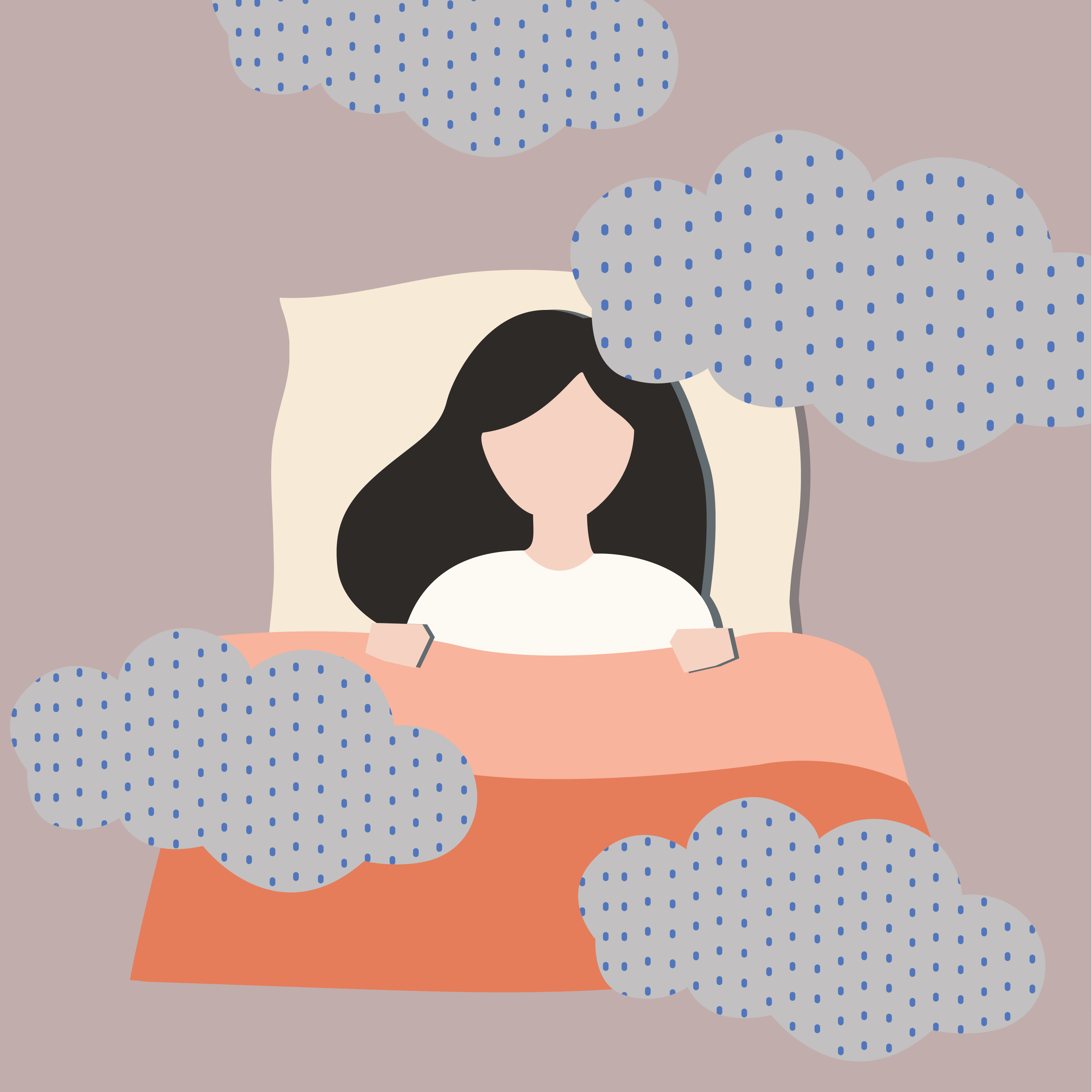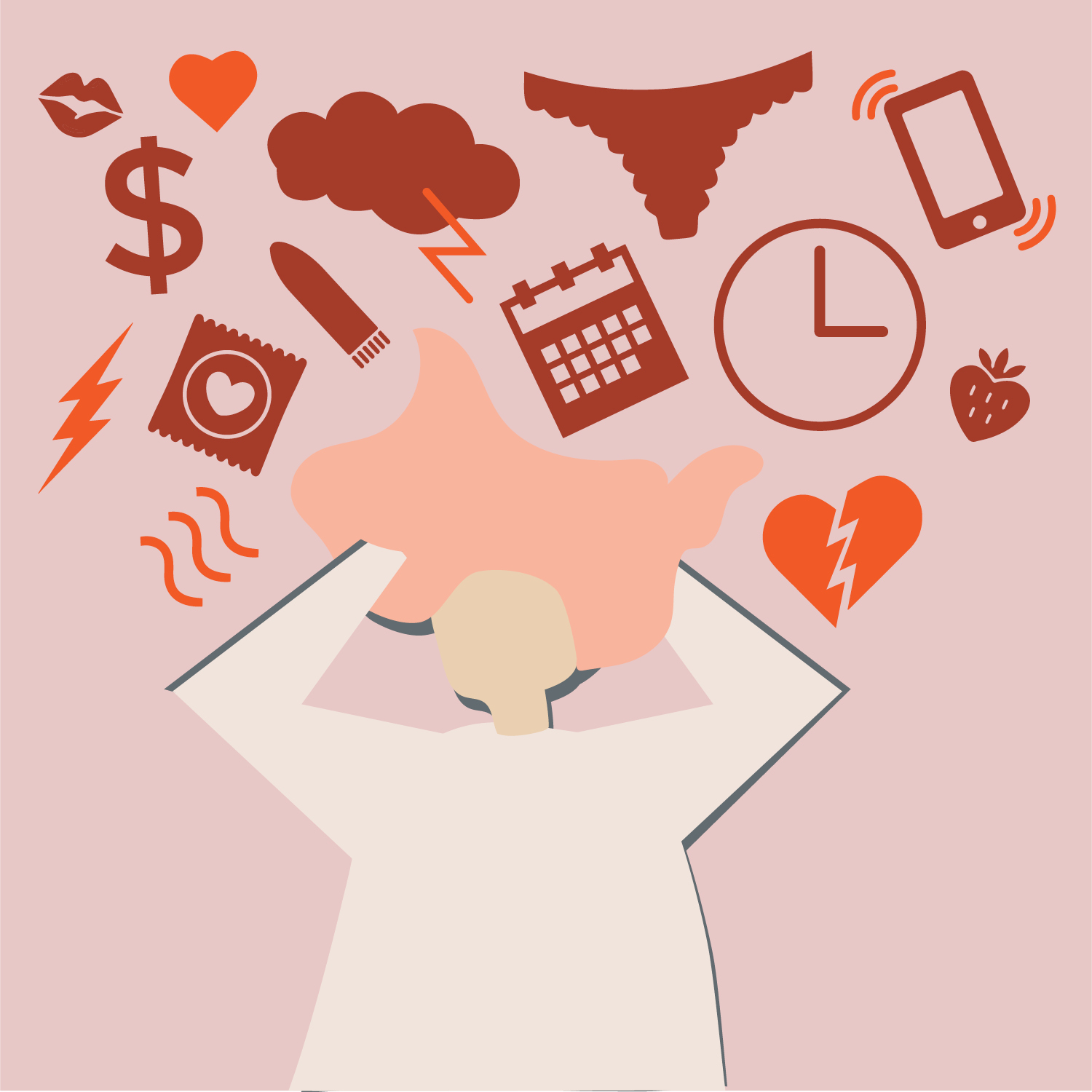Feb 05, 2021
WHEN WILL I GET MY FIRST PERIOD? MENSTRUAL CYCLE 101
Half of the world’s population will get their first period during their tween and teenager years.
A first period is just one way in which our bodies change during puberty, so it’s only natural to have lots of questions, and finding the information and support to help you feel confident in what’s happening can be tricky to find.
To help you learn about the different stages and rhythms of your period, we’ve partnered with period educator Demi Spaccavento and naturopath Georgia Borowski to create a period education series that covers all the most important aspects of understanding your period and menstrual cycle:
Part 1 | Menstrual Cycle 101: when & why we get periods.
Part 2 | What to expect with your first period: signs, symptoms & what’s ‘normal’.
Part 4 | First period problems & frequently asked questions.
Part 5 | For parents: Supporting your daughter through her first period. Coming soon.
Part 6 | How your cycle will change decade by decade. Coming soon.
In this first instalment of our First Period series, we answer some of the most commonly asked questions when it comes to when and why we get periods.
Stay in sync — enter your email below to get each new instalment of the First Period blog series delivered straight to your inbox when it’s published.
SIGN UP
Part 1 | Menstrual Cycle 101:
When & why we get periods
The uncertainty of not knowing when you will get your first period can cause feelings of nervousness or excitement (or both), and there are lots of questions you might have about when it will happen and what to expect. Even if you’ve already had your first period, you may still be wondering what they are, why we get them, and how long they last. Our series experts, period educator Demi Spaccavento and naturopath Georgia Borowski, answer some common questions young people have about first periods and explain what is happening to our bodies throughout each phase of the menstrual cycle.
WHAT IS A PERIOD?
Demi: Periods are a monthly bleed that are a part of the menstrual cycle. If you have your period, welcome to the menstruation club! A healthy period is a reflection of a healthy body – there’s a lot to love about them.
When you get your first period, the menstrual cycle begins, this is also known as Day 1 of your cycle. Having a period bleed is just one phase of this four-phase cycle. During your period, the lining of the uterus sheds and makes it way out of your body through the vagina.
WHY DO WE GET PERIODS?
Demi: Periods happen for two reasons:
- Firstly, so we are able to reproduce (have babies). During the menstrual cycle, our body builds up and thickens the lining of our uterus, which is called the endometrium. The body does this in order to prepare for the possibility of pregnancy happening in that cycle. The first step in pregnancy is for sexual intercourse to take place and an egg from your ovaries being fertilised by the sperm.
The final step is for this egg to implant into the lining of the uterus (endometrium). This is why the endometrium needs to be nice and thick. However, most months, most people do not get pregnant and therefore the body doesn’t need the thick endometrium, so it gets rid of it as your period. - Secondly, we have periods in order to make the hormones we need for our best physical and mental health. Our ovaries inside our internal reproductive system have an important role of making hormones such as oestrogen and progesterone. Our reproductive hormones are important for healthy bones and heart, sleep, managing stress and mood, protecting against certain diseases, increasing fertility, and protecting against vaginal infection.
WHEN WILL I GET MY FIRST PERIOD?
Demi: The average age that someone will get their first period is between 9 and 16 years old. Just like we all have different hair colour, skin colour, personalities and interests, we will have different experiences with our period. Some people get their period earlier in life and other people get it later, and that’s ok!
IS IT OK IF I’M 14, 15 OR 16 AND DON’T HAVE MY FIRST PERIOD YET?
Demi: If you’re 15 or 16 and you have other signs of puberty like your boobs and hips growing, the formation of pubic hair, getting taller, or cervical fluid (often referred to as discharge) in your underwear, then this is a good sign your period is likely on the way.
If you’re 15 or 16 and you do not have your period and you also do not have any of these other signs of puberty yet, then it can be a good idea to chat to your doctor to make sure there’s nothing standing in the way of your body beginning menstruation.
WHAT IS HAPPENING TO MY BODY BEFORE MY FIRST PERIOD?
Georgia: Before your first period begins, your hormones have already started to change. In fact, other changes may have already happened, your body may have gone through a growth spurt and you may have already started developing breasts. Every person will respond to the hormonal changes in their own unique way and in their own time. What initiates these changes is the rise of new hormones that begin to circulate in the body.
WHAT IS PMS?
Georgia: PMS is the abbreviation for Pre Menstrual Syndrome and refers to the symptoms that can develop in the week leading up to your period. Common symptoms include breast tenderness, mood changes, headaches and bloating. PMS is common but is not experienced by all women. In many cases, PMS symptoms can be supported by a healthy diet, good sleep and exercise.
HOW LONG DO PERIODS LAST?
Demi: Period bleeds last between 4-7 days on average. They usually begin with light blood loss for the first few hours, and then blood loss gets heavier for a few days. Towards the end, the blood loss gets lighter again until it stops. The average amount of time between the start of one period bleed until the next is 21-35 days, however, this can sometimes be even longer in teenagers whose bodies are still getting used to having a regular period.
WHAT ARE THE MENSTRUAL CYCLE PHASES?
Demi: Cycles are like circles – they go around and around, starting again once they reach the end. The menstrual cycle progresses through four stages, and then starts again once it’s finished. Our hormone levels are very different in each menstrual cycle phase. This means we might feel different physically, mentally, emotionally and behaviourally in each phase.
1. MENSTRUAL PHASE (YOUR PERIOD BLEED)
When: From the time your start your period bleed, until the day it finishes.
What: Blood and endometrium tissue from inside your uterus, shedding through your vagina.
- The first day of your period bleed is day 1 of your menstrual cycle.
- Lasts 4-7 days on average.
- Reproductive hormones – oestrogen, progesterone and testosterone among others – are at their lowest point.
- May experience cramps, leg/back pain, tiredness or tearfulness, while extreme symptoms may include headaches, nausea, vomiting and fainting.
2. FOLLICULAR PHASE (BEFORE OVULATION)
When: Day 1 of your period until ovulation.
What: Your brain signalling to your ovaries to prepare an egg that will be released.
- Oestrogen is dominant and helps to build up the lining of the uterus that will eventually become your period; it also helps ovulation to happen.
- You will experience relief from your period symptoms in this phase.
- May experience an increase in energy, concentration levels and brain function, increased mood, more stable emotions, stable eating behaviours and increased confidence towards the end.
- This phase lasts a different amount of time for everyone. The longer this phase lasts, the later your period will arrive.
3. OVULATION PHASE (WHEN YOUR OVARY RELEASES AN EGG)
When: 11-18 days before your next period. It’s often said that ovulation happens on day 14, however, ovulation can happen any day, and it can change each cycle
What: An egg is released from your ovary into your fallopian tube.
- A short phase lasting only 1-2 days.
- Ovaries in your internal reproductive system release an egg that, if fertilised by a sperm, can grow into a baby.
- You may experience an increase in energy, concentration levels and brain function, increased mood, more stable emotions, stable eating behaviours and increased confidence.
- Some experience ovulation pain (mild cramps similar to period cramps) or ovulation spotting (a bit of blood that is not your full period).
- Testosterone, which is usually quite low, peaks in this phase.
4. LUTEAL PHASE (AFTER OVULATION)
When: From ovulation until your next period starts.
What: The follicle containing your egg produces progesterone in preparation for being fertilised.
- Lasts between 11-18 days in the majority of people, including people with irregular periods.
- Oestrogen levels decrease and the hormone progesterone starts to be made by the ovaries.
- PMS symptoms are experienced in the luteal phase including mood swings, acne, breast tenderness, tearfulness, fatigue, food cravings, leg pain, back pain and more.
When the luteal phase is over, your next period bleed begins again.
IS THERE ANYTHING YOU CAN DO TO MAKE YOUR FIRST PERIOD COME FASTER?
Demi: There is nothing you can do to make your period come faster. Your body will begin the menstrual cycle when it is ready. Your first period will only come after the first time you ovulate. Be patient and kind with your body. If the people around you have their period and you don’t, that’s ok. Everyone is different. We’re not robots!
WILL I HAVE PERIODS FOR THE REST OF MY LIFE?
Demi: You won’t have your period for the rest of your life. The menstrual cycle lasts until around the age of around 45-55 years old, when the body goes through menopause. Menopause is when the body begins the progress of no longer having a menstrual cycle. Remember, we need to have a menstrual cycle in order to get pregnant, so once the menstrual cycle stops at menopause, someone will not be able to get pregnant anymore.
Periods also pause during pregnancy. This is because, like we learned above, a period is the body getting rid of the lining of the uterus. When you’re pregnant, you need the lining of the uterus to stay in place in order to help grow the baby. The menstrual cycle will return a few months (and sometimes over a year) after giving birth.
—
Demi Spaccavento is a passionate women’s health educator, author, high school teacher and the founder of Bright Girl Health, empowering students to be in tune with their body and never have to dread their period again.
Georgia Borowski is a naturopath, nutritionist and herbalist who specialises in supporting and educating women through hormonal changes, fertility, pregnancy and postnatal care. You can find her at Women’s Health Melbourne where she consults in person, or online at naturopathgeorgia.com.au
Blogs

Jun 08, 2022
EXPLORING PERIOD CARE IN CULTURES AROUND THE WORLD
Our TOM Talks panelist Sabina McKenna explores how different cultures around the world approach period care.
Read More
Jun 08, 2022
STOP APOLOGISING FOR HAVING YOUR PERIOD
Our TOM Talks panelist Mel Mason talks about the importance of not apologising for having your period.
Read More
Jun 07, 2022
STRESSED? NOT SLEEPING? TRYING TO CONCEIVE?
TOM Talk's panelist Georgia Hartmann discussed the links between stress, sleep and fertility.
Read More
Jun 07, 2022
STRESS AND HOW IT AFFECTS YOUR SEX DRIVE
Certified sex coach Georgia Grace is here to unpack the link between stress and sex.
Read MoreProducts